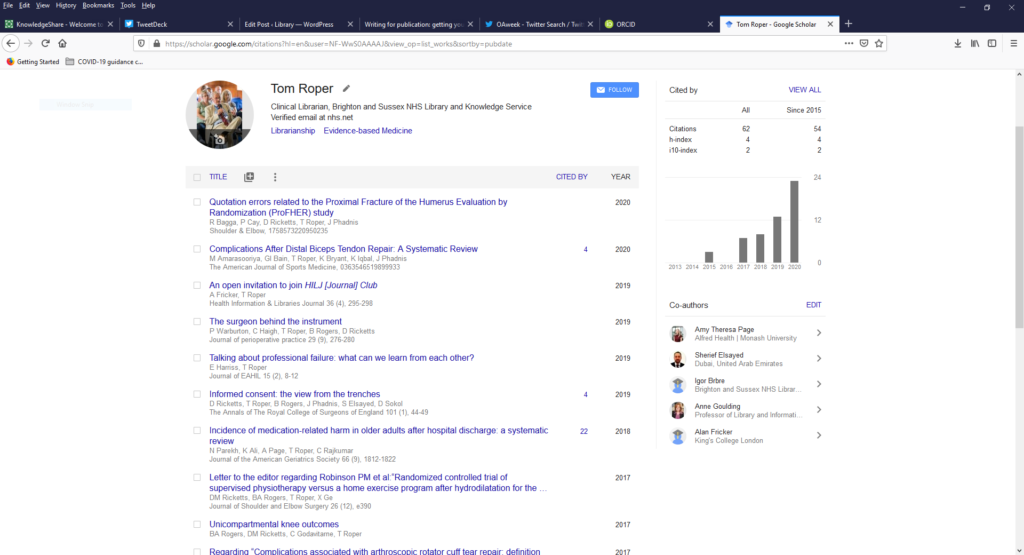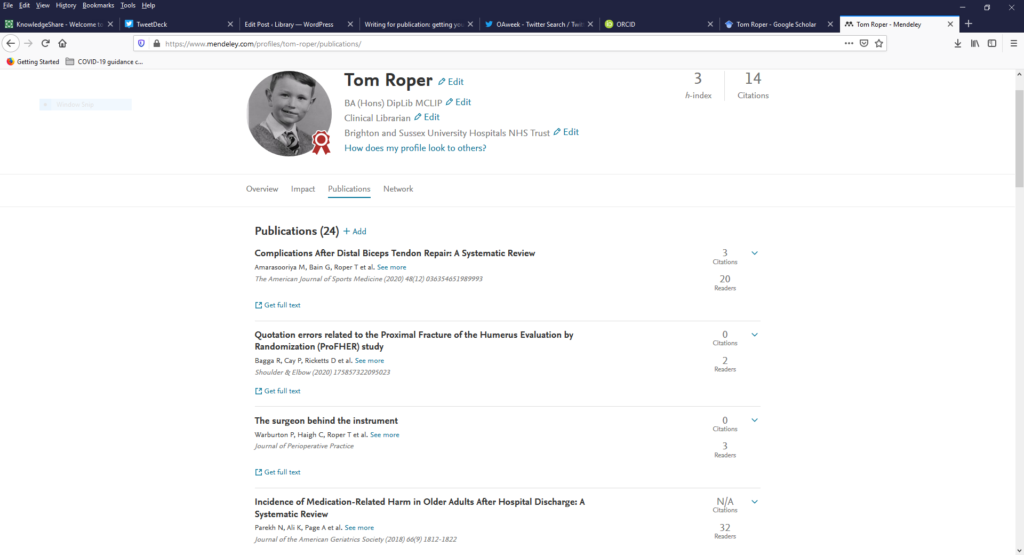If you’ve published research, you’ll want to disseminate it. Online tools offer opportunities to collect, organise and showcase your research publications. For Open Access week, clinical librarian Tom Roper discusses some of the tools available.
Take ORCID: though ORCID’s primary purpose is to act as a unique persistent identifier for a researcher, invaluable for those of us with common names, the profile section of ORCID allows one to create a profile including not just details of publications, but also employment, education, awards and distinctions, research grants and professional memberships. Publications are easily added, by searching, by adding a DOI or PubMed ID, by importing a BibText file, or by adding manually.

Google Scholar also supports profiles, with the added advantage that it will suggest papers that may be yours. And it will create an h-index, which measures the productivity or impact of your publications.

Mendeley allows profiles, and, if you download the desktop program, can be set to watch folders on computers for pdfs and automatically import them. Your own publications can then be added to a My Publications folder, and then appear in your online profile. Other reference management tolls., such as EndNote, have similar functionality. The desktop version of EndNote is installed on some library computers.

ResearchGate is popular: its group of Brighton and Sussex University Hospitals NHS Trust researchers has 609 members. It is more a commercial social network though, and some find its frequent emails irritating.
These resources are discussed in greater depth on our Writing for Publication: getting your research into print course: book here to attend

